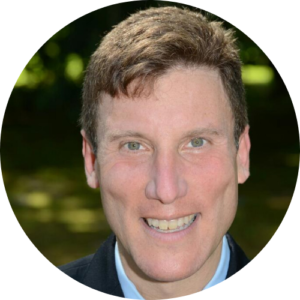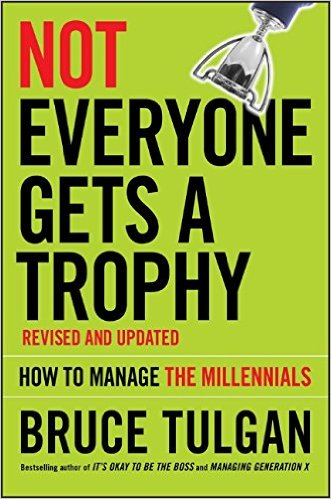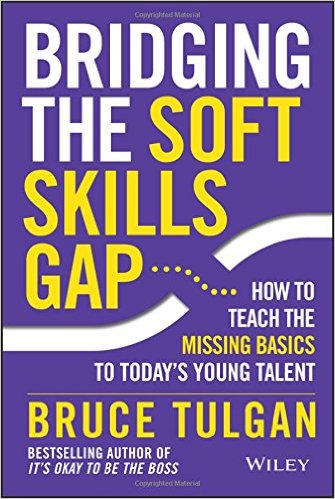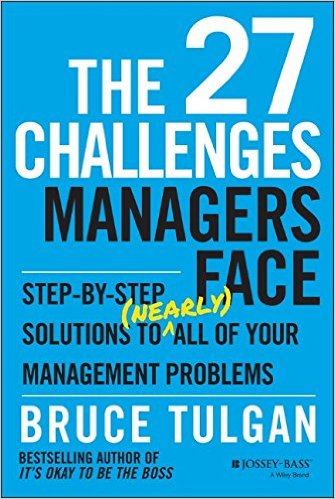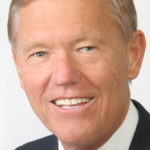HUMAN CAPITAL MANAGEMENT: Winning the Talent Wars®: Staffing Strategy, Recruiting, Rewarding, and Retaining
Dozens of best practices to help your leaders, managers, and supervisors get much better at the strategies and tactics of maximizing human capital. After this program, participants will be better prepared to:
(-) Develop strategies and tactics to meet staffing challenges.
(-) Plan an effective employee recruiting campaign.
(-) Improve employee selection practices.
(-) Build a cutting-edge employee orientation program.
(-) Set priorities for training and development of employees.
(-) Strengthen performance management systems.
(-) Tie rewards and incentives more closely to performance.
(-) Increase the retention of high-performers and turnover of low-performers.
(-) Implement a knowledge-transfer process.
Fight the Under-Management Epidemic: A Call to Action for CEOs, Business Owners and Senior Leaders
The Under-Management Epidemic
In 2004 a groundbreaking research study from RainmakerThinking, Inc. revealed an epidemic of under-management throughout the workplace. 10 years later our on-going study shows under-management is still rampant. A full 90% of all leaders and managers are not providing their direct-reports with sufficient guidance, support and coaching.
Why It Matters
-The costs of under-management throughout the management ranks are staggering.
-Under-management is what causes sound strategic plans and new initiatives to fail or fall short of their potential due to execution.
-Under-management is the source of nearly every poor customer experience.
-Under-management is the ticking time bomb at the heart of nearly every major existential corporate crisis.
-Under-management is the basis of nearly every human capital challenge organizations face today. Worried about employee engagement? Low employee morale, productivity and engagement are all leading symptoms of acute under-management.
Where it Hides
Under-management is often hiding in plain sight throughout the organization. Maybe it's just out of site of senior executives…further down the food chain.
Often, under-management is hiding behind the trappings management — perfunctory check-ins, ineffective team meetings, management by interruption, "firefighting," and "empowerment" — practiced by managers who don't know any better "going through the motions" of management.
It is About to Get Even More Urgent
At RainmakerThinking, Inc. we are perhaps best known for our research on young talent and for looking at the workplace through a "generational lens." Our research shows that organizations in North America and throughout the world are on the precipice of a profound "generational shift." Baby Boomers are leaving the workforce in droves and taking with them so very much skill, knowledge, wisdom, institutional memory, relationships, and the last vestiges of the old-fashioned work ethic. At the youngest end of the spectrum, the Second Wave of the great Millennial cohort (those we refer to as "Generation Z," born 1990-1999) are flooding into the workforce, filling up a new youth bubble in the workforce, and bringing with them a whole new attitude about work and career.
Generation Z is armed with youthful energy and enthusiasm, the latest education and training, native technical facility, constant real-time data about everything (information-access unimaginable even a decade ago), and an abundance of self-esteem and parental support. They are accustomed to adult authority figures fully dedicated to setting them up for success and helping them to undo, redo or mitigate their failures. It is no wonder that hiring managers tell us every single day that Gen-Zers manifest profound gaps in many of the so-called "basics": Timeliness, organization, critical thinking, interpersonal communication, and the ability to grasp and appreciate context. What is more, they crave guidance, direction, support, and constant feedback.
The Gen Z workforce will greatly exacerbate the vulnerability of employers to the great costs of under-management. Business leaders who figure this out and act on it faster than the competition can gain huge strategic advantage. Gen Z will pay great returns to organizations that succeed in moving their leadership practices toward strong highly-engaged management.
For two decades Bruce Tulgan has advised senior leaders at the highest levels of organizations around the world on identifying and eliminating under-management. Whether in thought-provoking keynotes, seminars, executive problem solving sessions or through ongoing consulting relationships, Bruce lays out the strategic rationale, implications and steps for leading the leaders of your organization toward the systems, practices, competencies, habits, and culture of strong, highly-engaged leadership.
It's Okay to Be the Boss: How to Be the Manager Your Employees Need
In 2004, a groundbreaking research study from RainmakerThinking, Inc. revealed an epidemic of under-management throughout the workplace. Ten years later, this ongoing study shows under-management is still rampant: Nine out of ten leaders and managers provide their direct-reports with too little guidance, direction, support and coaching. Under-management afflicts leaders and managers at all levels in organizations of all shapes and sizes in every industry.
In his classic best-seller It's Okay to Be the Boss ™ — The Step-by-step Guide to Becoming the Manager Your Employees Need Bruce Tulgan shares the lessons from leading hundreds of his legendary "manager's boot camps" in which he helped managers confront under-management in themselves and learn to practice the basics of strong highly-engaged leadership.
Bruce Tulgan has had his finger on the pulse of real managers in the real world for nearly twenty years. Armed with thousands of case studies and hundreds of best practices, Bruce connects with managers because he helps them tackle their real world challenges.
Attendees will come away with fresh insights and actionable tools and techniques that will make them more effective managers almost immediately.
Bringing Out the Best in Young Talent: Managing Millennials
When Managing Generation X came out in 1995, it hit a nerve and changed the global conversation about young people in the workplace. As a result, the book became a classic and the author Bruce Tulgan was able to continue his pioneering research becoming a leading expert on young people in the workplace.
The company he founded, RainmakerThinking, Inc. ®, has continued that research today. For nearly two decades we have conducted in-depth interviews, focus groups, and surveys tracking the attitudes and behavior of young people in the workplace, how they are being managed, and how they should be managed.
By the mid 1990s, RainmakerThinking was tracking the first wave of the great Millennial cohort, "Generation Y" (born 1978-89). In the early 2000s, RainmakerThinking began tracking the second wave Millennials, "Generation Z" (born 1990-2000), when they first entered the workforce as teenagers in part-time jobs. All along, Bruce has kept his finger on the pulse of the ever-emerging newest "new" young workforce, maintaining a comprehensive picture of where they are coming from and where they are going in the changing workplace.
This research has resulted in many books, including two books about the Millennials: In NOT EVERYONE GETS A TROPHY Wiley/Jossey-Bass: Revised Updated 2016; originally published 2009), Bruce refers to the Millennials as "the most high maintenance workforce in history" but then gives step-by-step tools and techniques for helping them become "the most high-performing workforce in history." In BRIDGING THE SOFT SKILLS GAP (September 2015), Bruce addresses the number one issue with young workers today and teaches managers how to "teach the missing basics to today's young talent."
As the older (first wave) Baby Boomers are now steadily exiting the workforce, the simultaneous rising global youth-tide of the second wave Millennials represents a tipping point. By 2020, Generation Z will be greater than 20% of the workforce (much greater outside the West in younger parts of the world —- especially South Asia, Sub Saharan Africa, and South America). Indeed, the 2020 workforce will be more than 80% post-Boomer — dominated in numbers, norms, and values by Generations X, Y, and Z.
In this presentation, Bruce presents his latest research and insights on the newest "new" young workforce, along with his decades of experience helping managers in hundreds of different companies bring out the best in young talent.
Bruce separates the facts from the myths about today's young workers. With verbatim (and often hilarious) quotes from young workers and their managers, Bruce offers actionable advice for leaders, managers, and supervisors to better recruit, train, engage, develop, motivate and retain the best of the next generation of talent.
Generational Shift: Leveraging Generational Diversity in the Workplace
For nearly two decades RainmakerThinking, Inc. has been tracking the hopes, fears, and aspirations of people across all generations. Our ongoing study, Generational Shift in the Workplace, reveals strong generational trends in career paths, management practices, attitudes, expectations and behavior in the workplace.
Generational diversity issues in the workplace have never been more pressing, nor have they been more complex:
On the oldest end of the spectrum, the last of the pre-Baby Boomers (1% of the workforce) are waning. The Boomers (30%; born 1946-64) are now the grey haired elders and record numbers of them will for the foreseeable future steadily exit the workforce taking with them decades of wisdom, knowledge and expertise.
On the youngest end of the spectrum, Generation Z ("Second Wave Millennials" born 1990-1999), weaned on ubiquitous hand-held devices, economic uncertainty in a post-9/11 world, is already 14% of the workforce and the fastest growing segment of the workforce. Generation Z is 24 going on 44. Meanwhile, Generation Y (28%; "First Wave Millennials" born 1978-89) is now 30-something… going on 20-something.
In the middle, Generation Xers (27%; born 1965-77) are now the prime age workforce, increasingly moving into positions of leadership and responsibility.
We are all living through these profound changes in our workplace today. Our research shows that, depending on where you are in your life and career, you are probably experiencing these changes differently. That's why the "generational lens" can be so powerful.
Using the "generational lens" he first developed in Managing the Generational Mix — From Urgency to Opportunity Bruce helps people of different generations understand where each other is coming from and where they are going. Along the way, he shares the best practices to help people of all ages work together more effectively and turn age diversity into strategic advantage.
It's Okay to Manage Your Boss: How to Help Your Boss Give You the Support, Training, Guidance, and Feedback You Need to Succeed
Wherever you work, unless you work alone, then you probably rely on your immediate boss more than anyone else to help you make valuable contributions every day and get what you need at work. No other relationship is as important to your career success as the relationship you have with your immediate leader/manager/supervisor. Yet, most employers do not take enough time to teach employees the best practices for working effectively with your immediate manager.
Now leveraging more than two decades of RainmakerThinking, Inc. research, Bruce has created a program especially tailored to teach employees how to better manage themselves and take a more active role in managing their working relationships with their immediate managers. Bruce teaches employees how to tune-in to what their managers need and want from them — and how to help their managers get better at managing them. When employees take greater responsibility for making sure they are working well with their managers, everything goes better.
Based on ongoing research started in 1993, Bruce teaches employees to focus like a laser beam on building ongoing dialogues with their managers in order to get the four essential elements every employee needs in order to succeed:
-Clearly spelled-out and reasonable expectations
-The skills, tools, and resources you need to accomplish those expectations
-Honest feedback about your performance and course-correcting direction when necessary
-Proper recognition and rewards in exchange for your performance
When employees get really good at managing their managers, they are able to do more work better and faster, get more recognition and reward, and increase their chances of success at work. Everybody wins.
